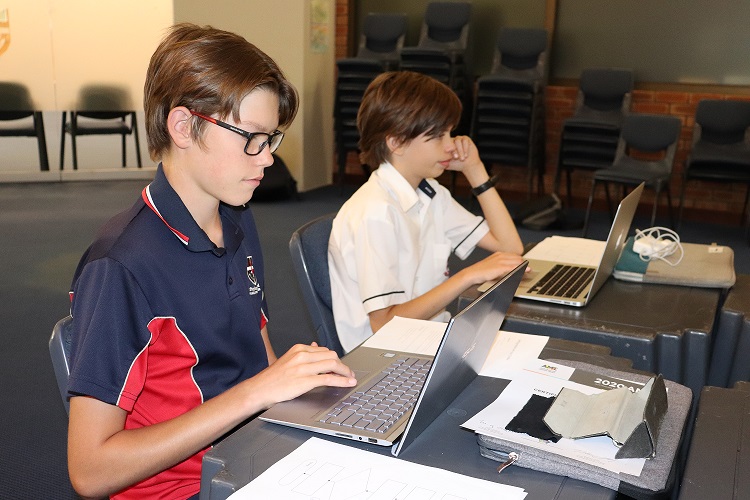
Whether it is improving data security or helping to enhance students’ learning experience, cloud technology has been transforming the way education services around the world are delivered.
Indeed, cloud technology was critical in providing anywhere-anytime learning during remote and flexible learning throughout 2020, but even with the return of face-to-face classes, schools are using the cloud to harness new innovations.
But it’s not just at school that this technology is critical. Reports have shown that the Australian cloud market is expected to boom to $11bn by 2023.
The growth of cloud computing is set to provide big opportunities for students to enter an industry that provides more than 80% of all online, games or streaming services used each day.
One school helping students leverage the opportunities inherent in this boom is St Stephen’s School, based across three campuses in Western Australia.
Students at St Stephen’s Duncraig campus recently took part in an Australia-first pilot program aimed at leveraging skills used in cloud-based careers.
The program, delivered on an Amazon Web Services (AWS) platform by local STEM educators Fire Tech in a two-day hackathon, saw Year 9 and 10 students build their own Chatbot – a computer program that simulates and processes human conversation.
St Stephen’s School staff were also trained in cloud-based technology as part of the program, with the hope to integrate the learning more into the general classroom environment.
Fire Tech director, Andrea Conte, said the idea behind the initiative was to help young people understand how important the cloud is in modern technology.
“Chatbots represent one of the simplest forms of cloud technology and one many of us are familiar with, so it is a great place to start for students interested in learning these types of skills,” Conte said.
“We offer a range of coding, robotics, gaming and artificial intelligence programs but the cloud-based arena is something we believe is really important to invest in”.
Fire Tech Head of Learning, Stephen Baker, led the program training and said the students were lucky to be using an industry-based product, Amazon Lex, which is used by companies like Google, Facebook and Twitter.
“They are learning industry skills and soft skillsets like collaboration, cooperation, project management, creative design, design principles, critical thinking, logical sequencing and also learning how to use an industry-based product that professionals use to create a chatbot,” he said.
“We are using a very different learning model, so not a standard classroom structure; it’s a different environment, closer to a tertiary learning environment, where there’s a lecturer or someone speaking, working in groups and collaborating and getting to use skill sets that will be used further along in life and in tertiary studies as well”.
With just 10 school days remaining of Term 4 in Western Australia, the school is ready to farewell to a tumultuous year and welcome what will hopefully be a much more organised and predictable one when the school gates open again on February 1.
St Stephen’s School principal, Donella Beare, said that in the year ahead the school’s teaching staff be drawing on the key learnings of 2020 to ensure their students thrive academically and socially in 2021.
“I believe our standing as a digital-forward school really assisted in the ease of transition to online learning and back,” Beare told The Educator.
“Our staff and students are already rather tech-savvy so there weren’t too many roadblocks to ensure learning was able to continue”.
Beare said several systems used by the school during online learning have been integrated more into day-to-day teaching like videoconferencing, using TEAMS and online sharing.
“However, as we are all relational beings, there was still an overwhelming sigh of relief amongst students, teachers, and I’m sure parents, when we returned to face-to-face learning,” she said.
“There truly is nothing quite like being able to discuss, learn and bounce ideas off others in person and this relationship-based approach is just one of the many things we pride ourselves on”.


